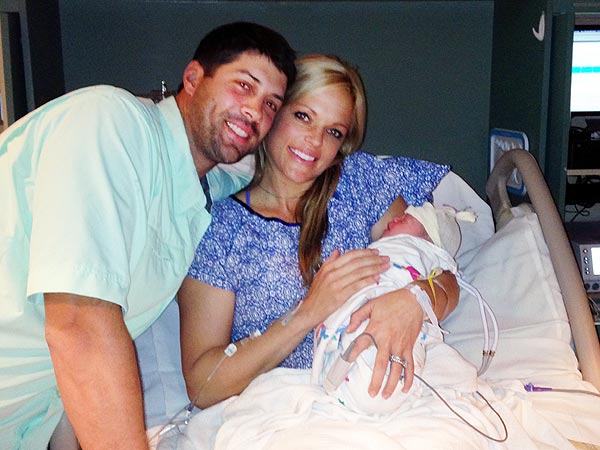NEW YORK (AP) — Flu is now widespread in all but three states as the nation grapples with an earlier-than-normal season. But there was one bit of good news Friday: The number of hard-hit areas declined.
The flu season in the U.S. got under way a month early, in December, driven by a strain that tends to make people sicker. That led to worries that it might be a bad season, following one of the mildest flu seasons in recent memory.
The latest numbers do show that the flu surpassed an "epidemic" threshold last week. That is based on deaths from pneumonia and influenza in 122 U.S. cities. However, it's not unusual — the epidemic level varies at different times of the year, and it was breached earlier this flu season, in October and November.
And there's a hint that the flu season may already have peaked in some spots, like in the South. Still, officials there and elsewhere are bracing for more sickness
In Ohio, administrators at Miami University are anxious that a bug that hit employees will spread to students when they return to the Oxford campus next week.
"Everybody's been sick. It's miserable," said Ritter Hoy, a spokeswoman for the 17,000-student school.
Despite the early start, health officials say it's not too late to get a flu shot. The vaccine is considered a good — though not perfect — protection against getting really sick from the flu.
Flu was widespread in 47 states last week, up from 41 the week before, the Centers for Disease Control and Prevention said on Friday. The only states without widespread flu were California, Mississippi and Hawaii.
The number of hard-hit states fell to 24 from 29, where larger numbers of people were treated for flu-like illness. Now off that list: Florida, Arkansas and South Carolina in the South, the first region hit this flu season.
Recent flu reports included holiday weeks when some doctor's offices were closed, so it will probably take a couple more weeks to get a better picture, CDC officials said Friday. Experts say so far say the season looks moderate.
"Only time will tell how moderate or severe this flu season will be," CDC Director Dr. Thomas Frieden said Friday in a teleconference with reporters.
The government doesn't keep a running tally of adult deaths from the flu, but estimates that it kills about 24,000 people in an average year. Nationally, 20 children have died from the flu this season.
Flu vaccinations are recommended for everyone 6 months or older. Since the swine flu epidemic in 2009, vaccination rates have increased in the U.S., but more than half of Americans haven't gotten this year's vaccine.
Nearly 130 million doses of flu vaccine were distributed this year, and at least 112 million have been used. Vaccine is still available, but supplies may have run low in some locations, officials said.
To find a shot, "you may have to call a couple places," said Dr. Patricia Quinlisk, who tracks the flu in Iowa.
In midtown Manhattan, Hyrmete Sciuto got a flu shot Friday at a drugstore. She skipped it in recent years, but news reports about the flu this week worried her.
During her commute from Edgewater, N.J., by ferry and bus, "I have people coughing in my face," she said. "I didn't want to risk it this year."
The vaccine is no guarantee, though, that you won't get sick. On Friday, CDC officials said a recent study of more than 1,100 people has concluded the current flu vaccine is 62 percent effective. That means the average vaccinated person is 62 percent less likely to get a case of flu that sends them to the doctor, compared to people who don't get the vaccine. That's in line with other years.
The vaccine is reformulated annually, and this year's is a good match to the viruses going around.
The flu's early arrival coincided with spikes in flu-like illnesses caused by other bugs, including a new norovirus that causes vomiting and diarrhea, or what is commonly known as "stomach flu." Those illnesses likely are part of the heavy traffic in hospital and clinic waiting rooms, CDC officials said.
Europeans also are suffering an early flu season, though a milder strain predominates there. China, Japan, the West Bank, the Gaza Strip, Algeria and the Republic of Congo have also reported increasing flu.
Flu usually peaks in midwinter. Symptoms can include fever, cough, runny nose, head and body aches and fatigue. Some people also suffer vomiting and diarrhea, and some develop pneumonia or other severe complications.
Most people with flu have a mild illness. But people with severe symptoms should see a doctor. They may be given antiviral drugs or other medications to ease symptoms.
Some shortages have been reported for children's liquid Tamiflu, a prescription medicine used to treat flu. But health officials say adult Tamiflu pills are available, and pharmacists can convert those to doses for children.
___
Associated Press writers Dan Sewell in Cincinnati, Catherine Lucey in Des Moines, and Malcolm Ritter in New York contributed to this report.
___
Online:
CDC flu: http://www.cdc.gov/flu/index.htm










